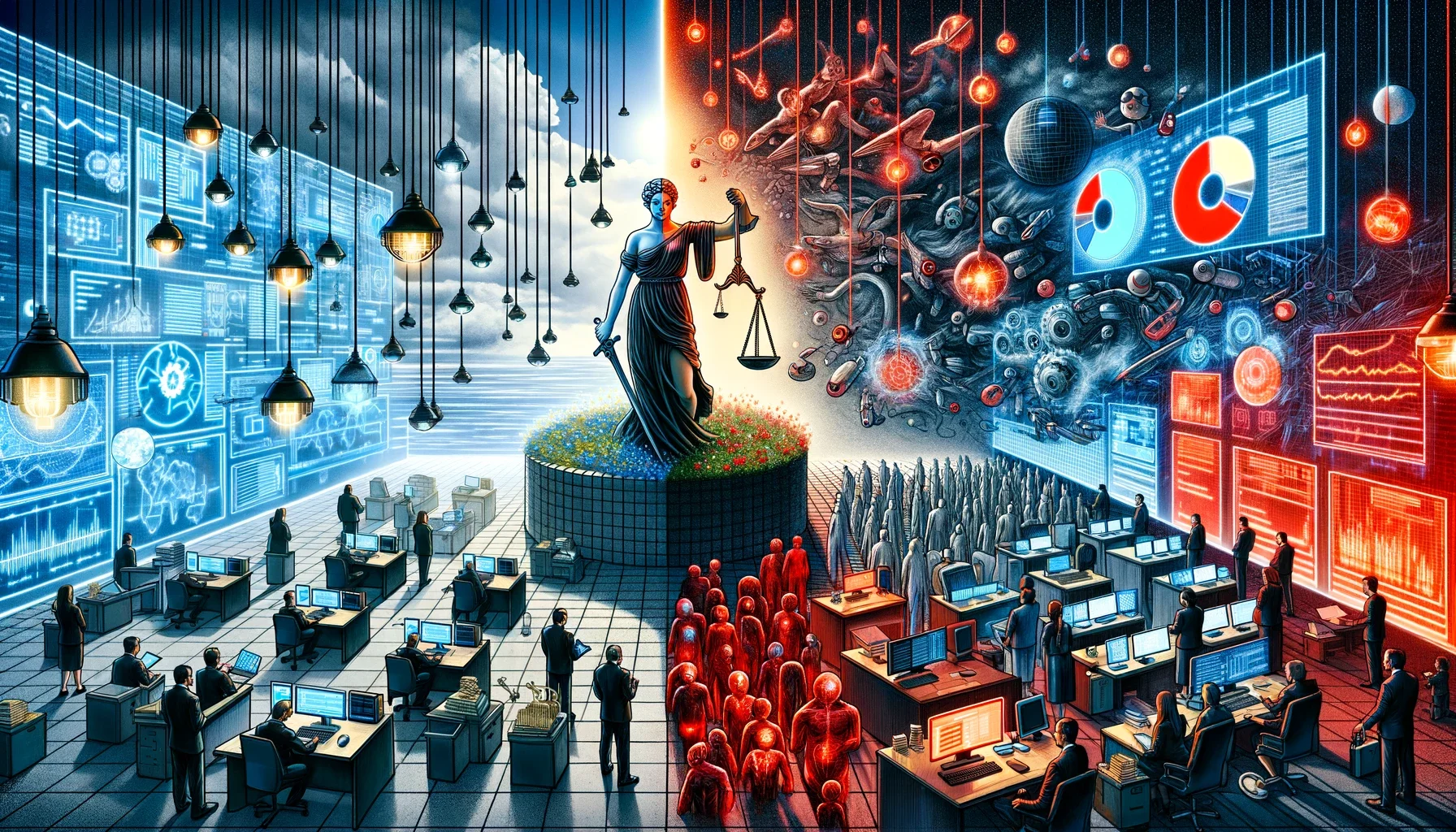Legal Ops Insights
mot-r Perspectives on Next-Gen ELM,
legal workload management,
and reducing burnout.
Legal Ops Insights
Don’t miss another blog.
Sign up for news and updates.
The “Private-Equity Playbook” for Legal Tech
What PE firms typically do once they buy into a legal tech software vendor, why they do it, and where customers can get burned.
Riding the J-Curve of Productivity in Legal Ops
When firms adopt a technology, the intangible investments needed to make it useful are systematically under‑measured. That mis‑measurement masks true productivity. This has interesting implications to both large-scale technology introductions (like AI) in society, and small scale introductions in business.
In-House Legal In A Doom Loop?
There is an expression that comes from design thinking that goes something like "Every system is perfectly designed to get the results it gets." If that holds true, then the system that In-house Legal finds itself inside of must have been designed by some evil genius.
mot-r Fails to Secure $75 Million in Series N/O Funding to Revolutionize Legal Service Operations
“We’re thrilled not to have to partner with Injustice Ventures and other investors as we continue our mission to save legal professionals from waste-filled operating practices and tools that drive up overwork, burnout and turnover,” said Mike Tobias, CEO of mot-r.
Avoiding the Post-DMS Pit Of Despair
After years of helping law firms and legal departments better manage their work and increasing workloads, I wanted to share a few insights on what typically happens 6 months down the road after a new tech solution like a Document Management System (DMS) is implemented.
Avoiding LegalTech Stupidity: The Hidden Curse of Technical Debt
How do you know when you’re struggling with technical debt with products from outside vendors?
One Loop or Two?
According to PwC UK's 2024 CEO Survey, a significant number of CEOs are concerned about the long-term viability of their enterprises if they do not undergo substantial transformation.
From Fighter Pilots to General Counsel: Using The OODA LOOP
Part of our mission here is to help corporate legal work suck less by building the best evidence-based operating practices into our software, and OODA is a framework that has been successfully used for many years and that we support in mot-r.
The Best LegalTech Stack is No LegalTech Stack- part II
Teams often purchase CLM solutions for perfectly clear reasons; they want the speed and quality of their contract preparation to increase to provide better service and lower their workloads. However, what often gets disregarded are the second- and third-order effects of those solutions.
The Best LegalTech Stack is No LegalTech Stack - part I
My view is perhaps a little counterintuitive; the best tech stack is no tech stack. No, it's not really feasible I don't think, but even by using the word stack, it implies that "more is better" (see pancakes, cash, pillows, books). While that may be true in some circumstances, it doesn't always ring true when you consider the second- and subsequent-order effects of technology buying decisions. What does that mean?
LegalOps PizzaGenics: What Could Go wrong?
It's harder to write something simple, as in, "if I'd had more time I'd have written a shorter note" which is often misattributed to Mark Twain, but more likely - although not definitively - comes from Blaise Pascal.
LegalOps Iatrogenics: When a Good Idea Can Go Very Wrong
The title could just as easily be LegalTech Iatrogenics as LegalOps and LegalTech are virtually inseparable in the current environment. And that doesn’t appear to be changing any time soon.
Parasitic Integrations vs. Symbiotic
Wherever it comes from, the touted “openness” of technology systems today seems less about coexisting symbiotically and more about sucking value out of one solution for the benefit of of the other.
Addition Sickness & Software
Here's a working hypothesis on the downside of the habit of continuing to add software solutions to your operations.
You're Busy. So Don't Hire a Manager!
As Henry David Thoreau said, "It's not enough to be busy. So are the ants. The question is: What are we busy about?"
That's not how you run a company!
It's amazing to me that so many large company CEO's have come out recently and stated that flexible (digital, remote, hybrid, WFH, etc.) work is hurting the performance of their enterprise. The first thing that comes to mind is "Compared to what!?"
Petulant CEOs & The Big Miss
For one of the first times - in non-unionized, knowledge-based work that is - corporations are being forced to "deal" with the working conditions that their workers actually want rather than enforcing what the company (executives) believe is best. And it appears that CEO's aren't happy about it.
AI Readiness & Orchestration
As with any revolutionary technology, I think it's safe to say that we'll overestimate its value in the short-term and underestimate its value in the long-term.
Avoiding Stupidity: De-Risking LegalTech Decisions
It's easy to fall into the trap of thinking we are perfectly capable of making technology decisions. As leaders, we’re rewarded for sounding and acting confident with very little information.





















